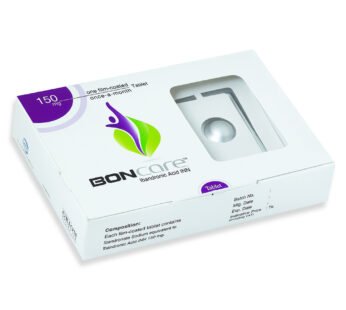DEMELON 1.5 MG
Description
Indications
Demelon Capsule is indicated for:
-
Alzheimer’s Dementia: Symptomatic treatment of mild to moderately severe Alzheimer’s dementia.
-
Parkinson’s Disease Dementia: Symptomatic treatment of mild to moderately severe dementia in patients with idiopathic Parkinson’s disease.
Take this medication only as directed by a registered physician.
Pharmacology
Rivastigmine, a carbamate derivative, works by reversibly binding to and inactivating cholinesterase enzymes (acetylcholinesterase and butyrylcholinesterase), which prevents the hydrolysis of acetylcholine. This results in increased acetylcholine levels at cholinergic synapses, improving cognitive function. Rivastigmine primarily acts on brain cholinesterases compared to those in peripheral tissues.
Dosage
Rivastigmine Capsule:
-
Initial Dose: 1.5 mg twice daily.
-
Dose Titration:
-
Start with 1.5 mg twice daily.
-
If tolerated after 2 weeks, increase to 3 mg twice daily.
-
Further increments to 4.5 mg and 6 mg twice daily should follow at 2-week intervals, depending on tolerability.
-
-
Maintenance Dose: 3 mg to 6 mg twice daily, based on the highest tolerated dose.
-
Maximum Dose: 6 mg twice daily.
-
Re-initiation of Therapy: If treatment is interrupted for more than several days, restart at 1.5 mg twice daily and re-titrate as above.
Rivastigmine Transdermal Patch:
-
Initial Dose: 4.6 mg/24 hours patch applied once daily.
-
Dose Titration:
-
After 4 weeks, increase to 9.5 mg/24 hours (minimum effective dose).
-
After an additional 4 weeks, may increase to 13.3 mg/24 hours if tolerated.
-
-
Dosing for Conditions:
-
Mild to Moderate Alzheimer’s and Parkinson’s Disease Dementia: 9.5 mg/24 hours or 13.3 mg/24 hours patch.
-
Severe Alzheimer’s Disease: 13.3 mg/24 hours patch.
-
-
Re-initiation: For treatment interruptions longer than 3 days, restart at 4.6 mg/24 hours and titrate accordingly.
Take this medication only as directed by a registered physician.
Administration
-
Rivastigmine capsules should be taken twice daily with morning and evening meals.
-
Transdermal patches should be applied to intact skin, replaced every 24 hours, and not reused on the same skin site for 14 days.
Interaction
-
Anaesthesia: May exaggerate the effects of succinylcholine-type muscle relaxants. Adjust dose or temporarily discontinue if necessary.
-
Cholinergic Substances: Concurrent use is not recommended as it may interfere with activity.
-
Anticholinergic Agents: May reduce the effectiveness of rivastigmine.
-
No Interactions Observed: No pharmacokinetic interaction was found with digoxin, warfarin, diazepam, or fluoxetine.
Contraindications
-
Hypersensitivity to rivastigmine or other carbamate derivatives.
Side Effects
Common side effects include:
-
Nausea (38%)
-
Vomiting (23%)
-
Gastrointestinal disturbances (especially during titration)
-
Weight loss (more common in females during clinical studies)
Pregnancy & Lactation
-
Pregnancy: Rivastigmine should be used during pregnancy only if clearly necessary as no adequate clinical data is available.
-
Lactation: Rivastigmine is excreted into animal milk; it is unknown if it passes into human breast milk. Breastfeeding is not recommended.
Precautions & Warnings
-
Use with caution in patients with:
-
Sick sinus syndrome or conduction defects.
-
Respiratory diseases like asthma or obstructive pulmonary disease.
-
Gastric acid secretion issues (e.g., peptic ulcers).
-
Urinary obstruction or seizures.
-
Extrapyramidal symptoms.
-
-
Monitor body weight regularly.
-
Use with caution in patients with renal or hepatic impairment; dose adjustment may be required.
Use in Special Populations
-
Renal and Hepatic Impairment: Titrate doses based on individual tolerability.
-
Children: Not recommended for pediatric use.
Overdose Effects
-
Most overdose cases have not shown severe symptoms and can be managed conservatively. Symptoms may include nausea, vomiting, diarrhea, hallucinations, hypertension, bradycardia, or syncope.
-
Management:
-
For mild symptoms, discontinue rivastigmine for 24 hours.
-
Severe cases may require antiemetics or symptomatic treatment.
-
For massive overdose, administer intravenous atropine sulfate (initial dose: 0.03 mg/kg). Avoid using scopolamine as an antidote.
-
Therapeutic Class
Drugs for Dementia
Storage Conditions
Store in a cool, dry place, away from light. Keep out of reach of children.
Additional information
| Weight | 0.15 g |
|---|








Reviews
There are no reviews yet.